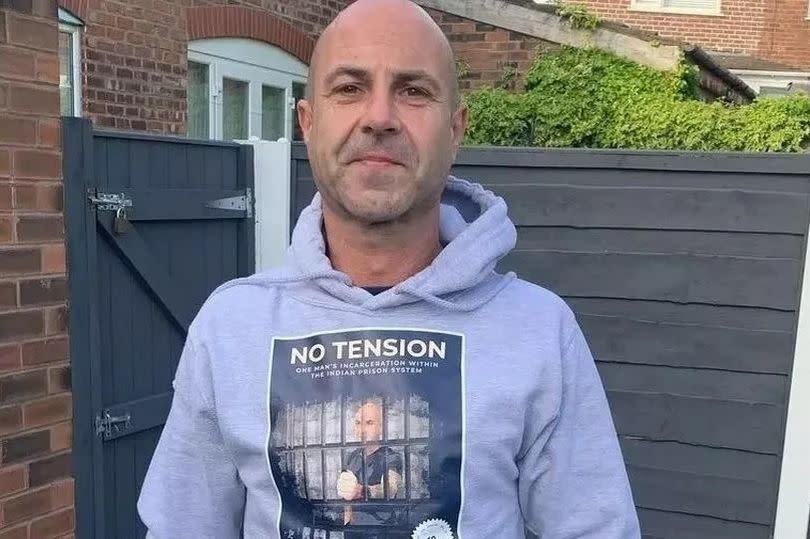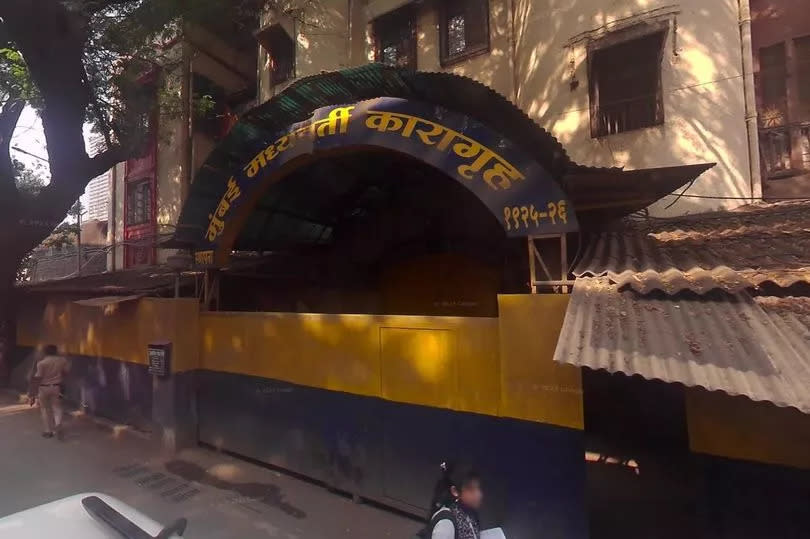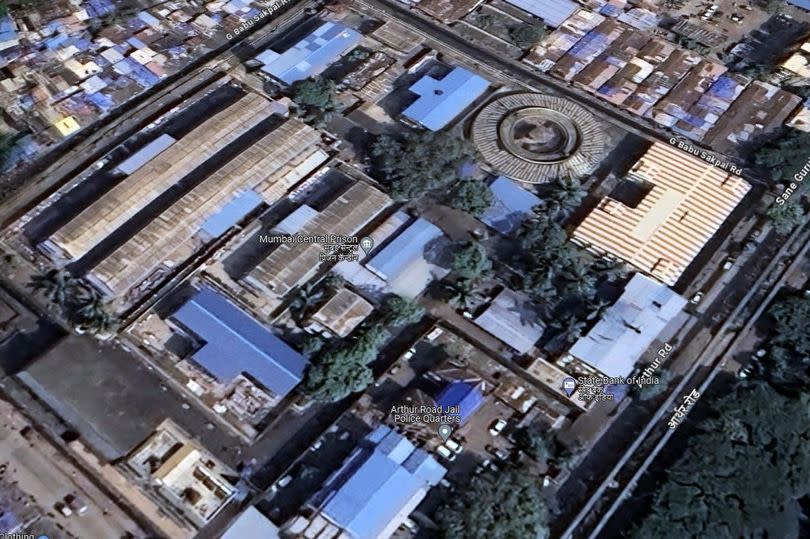'No regrets': How Salford dad Baz survived ten years in India's toughest jails

As Barry Hulse walked into the number eight barracks at the maximum security Arthur Road Jail in Mumbai his mind reeled. Awaiting trial for drugs smuggling offences, he'd been locked up with hardcore addicts, terrorists and some of India's most ruthless gangsters.
It was a far cry from his life as a dad and factory worker in Salford. "What I saw was an utter nightmare," said Barry. "It was almost like a slum; plastic bags and everyone's belongings were hung on the wall.
"Each floor had over 200 prisoners even though the capacity was 80. People were lying on the floor in groups. A person was having a fit; I saw foam coming out of his mouth. It was very disturbing sight to see, but the people were dealing with it as if it was usual."
READ MORE:
A keen traveller, Baz as he was known, was a regular visitor to Goa, where he was having an apartment built. But on November 21, 2009 he was stopped at Dabolim airport by customs officers from Mumbai.
"We'd like you to come with us for some questions," they said. It was the moment his life came 'crashing down'.
Two years earlier the authorities had seized three packages bound for the UK with Barry's details on them. Inside were 75,000 diazepam tablets.

The authorities had been searching for the dad-of-one ever since. Barry says he was tricked by a 'so-called' friend who, having promised to post presents bought from a market in Goa back to the UK for him, instead sent the massive shipment of sleeping tablets under his name.
It was the start of a nightmare that would last almost 10 years. The Arthur Road Jail is one of the most notorious and overcrowded in India.
Built in the 1920s, it's been criticised by local media for its 'inhuman conditions, abysmal health facilities and rampant corruption'. But Barry, then in his mid 30s, was going to have to adapt to life there pretty quickly.
Meals were usually daal, roti or yellow rice, eaten with the hands while sitting on the floor, while the afternoons were spent playing chess, walking or watching Indian soap operas on TV. Going to the bathroom was a particular ordeal for Barry, as the toilets were the traditional Indian squat variety with precious little privacy.

During his early weeks in the prison he caught malaria and lost almost a stone in weight. But things took a turn for the better when Barry palled up with a well-connected gangster called Santosh.
Soon Barry had extra covers for his bed, use of a contraband mobile phone, his meals were shipped in from a local restaurant, and crucially, for his popularity among the other prisoners, his mail arrived unopened and uncensored.
That meant he could arrange for his friends back in the UK to post pornographic magazines to him in Mumbai. "When I had it all boxed off in there with Santosh, I was getting my mail in without them checking it…so I started getting pornographic magazines," he told the Shaun Attwood podcast.
"Honest to God, every five minutes there was someone asking to borrow it."
Prison life settled into a routine while Barry waited for his trial date. But there were some things that were impossible to get used to.
The bedbugs, he says, were 'as big as ladybirds' and their bites would give you 'little lumps … but the worst things were the tiny ants, red ants'.

"Basically you used to put your washing on a line – I made the fatal error a few times where I've put my boxer shorts without shaking them out and then these little red ants are biting my balls.
"Many times I've had them in my food," he added. "You get rice and daal every every day mix it up and I'll be eating away and then I'd see one floating and I'd be like 'f*** it' I'm just gonna eat it, you know, it's a bit of protein."
Among the jail's most notorious inmates during Barry's time there were Mumbai terror attack mastermind Mustafa Dossa, and mob boss and drug lord Dawood Ibrahim.
Throughout his time in prison Barry maintained his innocence. And having spent three years and eight months on remand, finally on July 5, 2013 he discovered his fate.
He was found guilty and sentenced him to 20 years in prison.
"My world fell apart," he wrote in his memoir, No Tension. "I was furious, resentful, sad and most of all I had lost all the hope I was holding onto."
A tearful phone call with his mum back in Salford followed. And now he had been convicted, prison life changed dramatically.
He was made to wear a white prisoner's uniform with a yellow stripes on each arm, indicating he'd been jailed for more than seven years. Having been used to wearing his own clothes, it felt like an 'humiliation', he said.
And because he was now a convict he was also transferred to another jail, Kolhapur, away from the protection and patronage of Santosh. "The atmosphere was quite different, mainly because everyone was convicted," he said.
"So hope was gone. People were more like ghosts. Some had forgotten they had families and some families had forgotten about them."
Despondent and 'on edge', Barry started suffering from panic attacks. He became aggressive and anxious. They were among the darkest days of his time in prison.
But determined to survive, he adapted to his new surroundings. He made new friends and forged out a routine to stave off the depression, exercising with weights made out of clay and playing Ludo.
Further transfers to other prisons followed. And all the while his legal team were working in the background to try get his conviction overturned.
On Wednesday, July 7, 2019, almost six years since the day of his conviction, Barry was called to the superintendent's office. Beaming from ear-to-ear, the prison boss shook his hand and told him he had been acquitted and would be deported back to Britain.
He could scarcely believe the news. "I had served a total of nine years and eight months," he wrote. "I felt proud that I had survived mentally and physically, but I was on autopilot. I couldn't take anything for gospel until I had placed both my feet back on British soil."
That day would come a few weeks later when he landed at Heathrow, let out a sigh of relief, fell to his knees and kissed the ground. Now five years on, he's been able to gain some perspective on his time his prison - and life as a free man.
"It's just the tiny things in life. You appreciate them a lot more, " he told the All or Nothing podcast with Billy Moore. "Family. I've had three grand kids while I was away. You lose people, as well as people being born. But I don't have no regrets because it's the university of life and I think it's made me a better person, a stronger person, it opens your eyes a lot more.
"You really appreciate what time you've got, because you never know what's round the corner."

 Yahoo News
Yahoo News 
